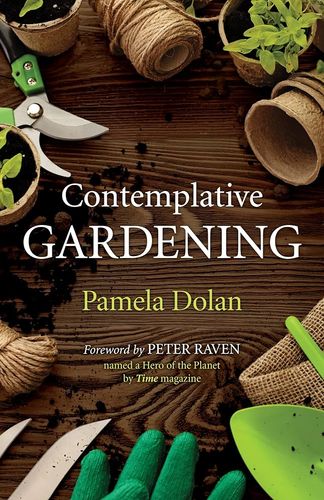This Sunday, St. Martin’s will celebrate 59 years as an Episcopal parish in west St. Louis County. Our church has gone through many changes and developments over those 59 years, and this Sunday’s Gospel reading in Mark about the disciples’ discussion with Jesus may increase our understanding. When the disciples ask Jesus, who is the greatest? “He took a little child and put it among them; and taking it in his arms, he said to them, “Whoever welcomes one such child in my name welcomes me, and whoever welcomes me welcomes not me but the one who sent me.” (Mark 9:37) Let’s see how we can respond to Jesus’ words as we consider our past, our present, and most importantly, our future!
Our Processional hymn, God of Love, we sing your glory, was written by Carolyn Winfrey Gillette to honor her church, Limestone Presbyterian Church upon their 50th anniversary. She wrote: “Limestone Church is typical of many churches begun in the 1950s: It was started as a mission outreach in an area where farms were turning into suburbs. It is a church that cares deeply about mission work and wants to reach out to help others in the community and around the world.” (Songs of Grace: New Hymns for God and Neighbor. 2009 Discipleship Resources) This description could easily be applied to our own St. Martin’s. We began with several Spirit-driven, faithful families who were determined to have an Episcopal church out in the western regions of St. Louis County where new neighborhoods were being developed. Now, 59 years later, we have become what we are today, a church that cares deeply about each other, and holds Christ’s teachings in our hearts as we reach out to our surrounding community.
Our Sequence hymn, Lord of all hopefulness, written by Jan Struther (1901-1953), focuses on working through the entire day with God’s grace and support. She wrote this hymn in 1931. It is a work with a warm human touch, a healthy spiritual tone, and well merits its popularity. The four stanzas begin by addressing God in terms of God’s attributes and then asks for specific blessings for morning, noon, evening, and night.
During World War II, Struther moved with her children from London to New York City and remained there until her death. In England she is best known for her novel Mrs. Miniver (1940) which was later made into a movie. (Hymnary.org)
This week, St. Martin’s Choir will be joined with the children in our Chapel Choir and Chelsea Brewer for the anthem. Our Offertory will be You Are Welcome Here, written by Mark Burrows in 2017. Burrows is a composer and clinician whose works are published by many major publishers. Known to little listeners as “Mister Mark”, he tours the country performing concerts for children and families. He is currently the Director of Children’s Ministries at First United Methodist Church in Fort Worth, Texas. (choristersguild.org) Chelsea and the Chapel Choir will sing the opening verse: “Am I welcome here? Am I safe to sing or laugh or shed a tear? Will I be loved the way I am? Will friends be near? Am I welcome here?” Then the adult choir will respond: “You are welcome here. You are safe to sing or laugh or shed a tear. We love you just the way you are, so have no fear. You are welcome here. This is a place of peace and grace, where all God’s children have a home. God’s reign will come, God’s will be done when all are loved and no one stands alone.” Our hope is that these words will touch your hearts as you meet others both here and in your own community every day. May you strive to find Jesus in each person you encounter, and do what you can to welcome them into God’s family! (2017 Choristers Guild)
Our Communion hymn comes directly from our Gospel reading, One small child, by Shirley Erena Murray. In this passage, Jesus illustrates child-like truthful simplicity as the means by which one embraces God. Murray’s text and Rusty Edward’s tune match the teaching of the scripture. Murray is an editor with the New Zealand Hymnbook Trust and has earned an international reputation as a hymn writer. Edwards is the pastor of Christ Lutheran Church in Marietta, Georgia, and a composer and hymn writer with more than 60 works. He titled this tune Rachel’s Song. (Marilyn Haskel & Lisa Neufeld Thomas, Voices Found hymnal supplement leaders’s guide 2004 by Church Publishing Inc.)
Our final hymn will be one that is new to us, All Are Welcome by Marty Haugen, the prolific liturgical hymnwriter who wrote this in 1994. It describes how the people of the church can “build a house where love can dwell and all can safely live, a place where saints and children tell how hearts learn to forgive. All are welcome in this place.” (Hymnary.org) May all people find a place of belonging here in 2024!

